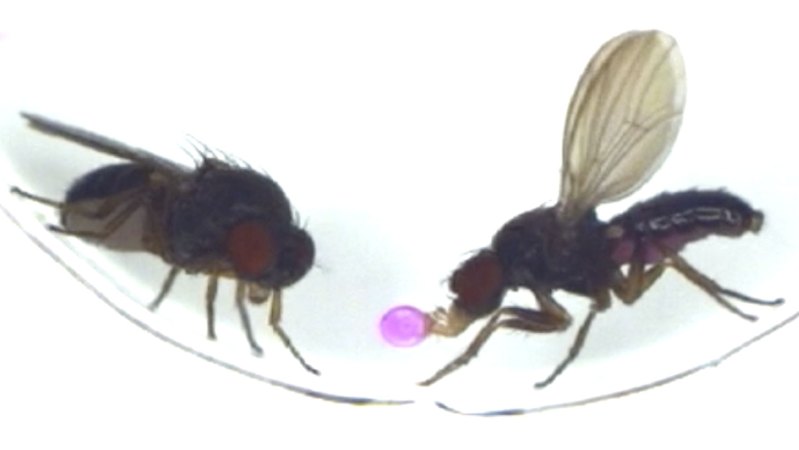Research has unveiled that a single protein in certain fruit flies is responsible for a peculiar behavior: males of the species Drosophila melanogaster exhibit a form of “romantic” vomiting. This behavior is linked to neurons involved in digestion, and it may have evolved as a means to attract potential mates.
Scientists at the University of California, San Diego, conducted a study published in early 2023, revealing that the production of a male-specific protein influences this unusual response. The findings suggest a fascinating connection between the digestive system and mating behaviors in these insects.
The study highlights that when male fruit flies consume food, they produce this protein in their digestive neurons. Following this, they engage in a behavior that appears to involve regurgitating food, which may serve to impress females. This act of “barfing” is not random; rather, it is intricately tied to their reproductive strategy.
Researchers observed that the male flies, upon consuming a sugary substance, would regurgitate some of it as they approached females. The assumption is that this act could signal to potential mates the male’s fitness and nutritional value. By sharing their food, these males may increase their chances of attracting a female for reproduction.
In a laboratory setting, the team conducted experiments to demonstrate this behavior. They monitored the interactions between male and female fruit flies and noted that the males who exhibited this vomiting behavior were more successful in mating. This aligns with the evolutionary notion that behaviors promoting reproductive success are more likely to persist in a population.
The implications of this study extend beyond fruit flies. It raises questions about the complex interplay between diet, digestion, and mating rituals in other species. Understanding how this protein influences behavior could provide insights into the evolutionary processes that shape interactions between animals.
As researchers continue to explore these connections, they aim to delve deeper into the biochemical mechanisms by which this protein operates. The findings not only contribute to our understanding of Drosophila melanogaster but also offer broader insights into the evolutionary biology of mating behaviors across species.
In conclusion, the discovery of a male-specific protein influencing a unique vomiting behavior in fruit flies presents a captivating glimpse into the interplay of digestion and reproduction. This research underscores the complexity of biological systems and the evolutionary significance of behavior in the animal kingdom.
